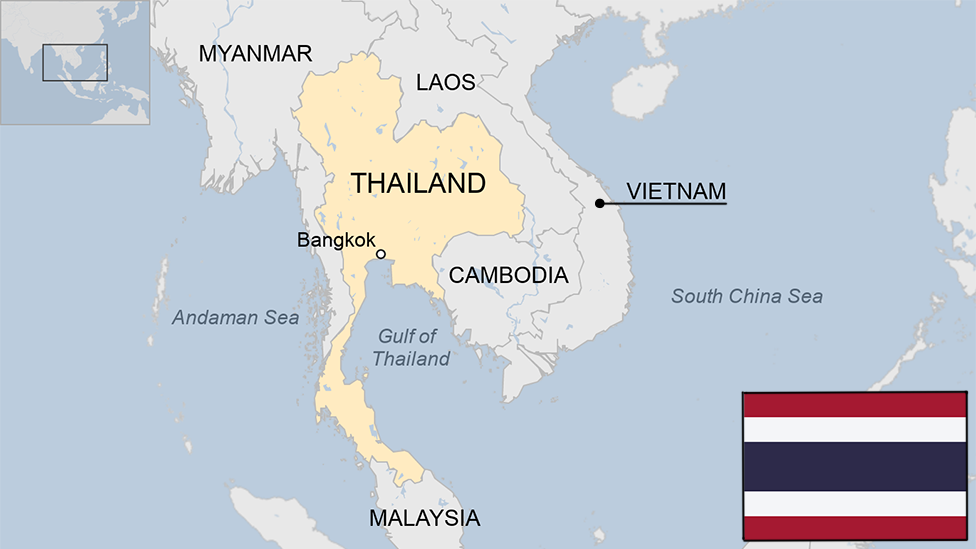Myanmar country profile
- Published
This page is no longer being updated. It was last updated on 26 May 2023
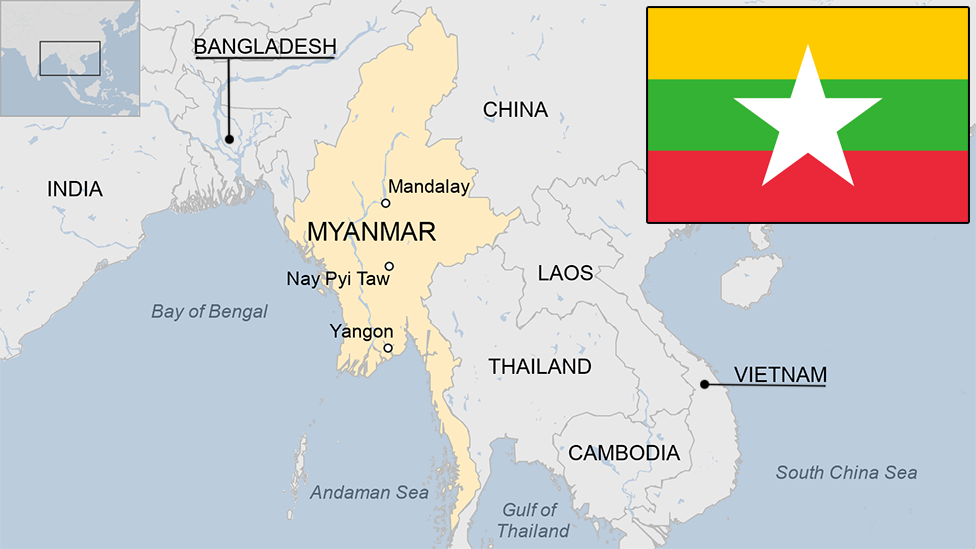
Myanmar, formerly known as Burma, gained independence from Britain in 1948, but its post-independence history has been characterised by unrest and conflict, with long-standing struggles for ethnic and sub-national autonomy.
It was long considered a pariah state while under the rule of a military junta from 1962 to 2011 that suppressed almost all dissent and stood accused of gross human rights abuses, prompting international condemnation and sanctions.
A gradual liberalisation began in 2010, leading to free elections in 2015 and the installation of a government led by veteran opposition leader Aung San Suu Kyi the following year.
But a 2017 army operation in Rakhine state drove more than half a million Muslim Rohingyas to flee to neighbouring Bangladesh, in what the United Nations called a "textbook example of ethnic cleansing".
It damaged the new government's international reputation, and highlighted the military's continuing grip. This was confirmed when Aung San Suu Kyi and her government were overthrown in a coup in February 2021.
Read more country profiles, external - Profiles by BBC Monitoring, external
REPUBLIC OF THE UNION OF MYANMAR: FACTS
Capital: Nay Pyi Taw
Area: 676,570 sq km
Population: 57.2 million
Languages: Burmese, plus Chin, Kachin, Karen, Kayah, Mon, Rakhine, Shan
Life expectancy: 63 years (men) 69 years (women)
LEADERS
President: (acting) Myint Swe
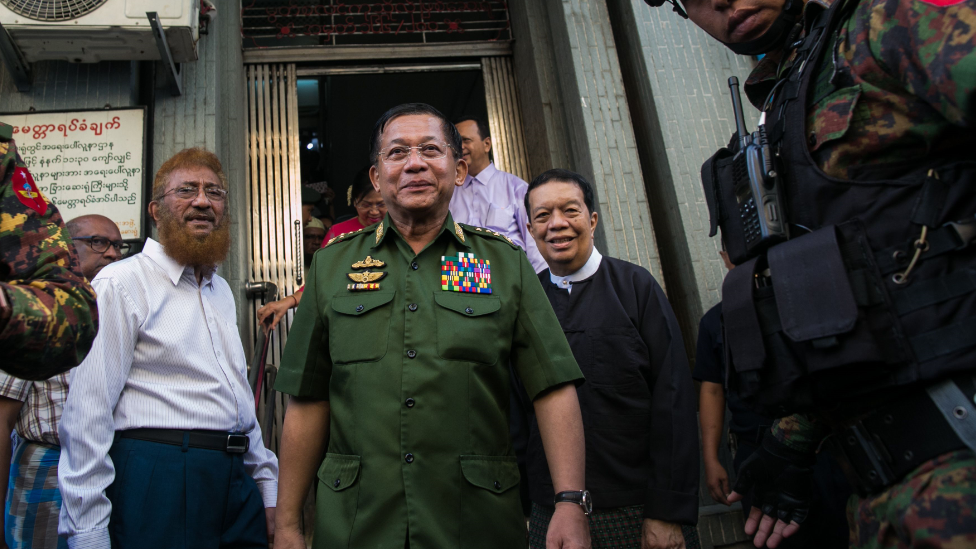
Min Aung Hlaing seized power in a military coup in 2021
The army promoted Vice-President Myint Swe to the acting presidency in February 2021, after overthrowing President U Win Myint and de-facto head of government Aung San Suu Kyi in a coup.
Real power lies with commander-in-chief and coup leader Min Aung Hlaing. Aung San Suu Kyi had run the country as State Counsellor since the end of military rule in 2016.
MEDIA
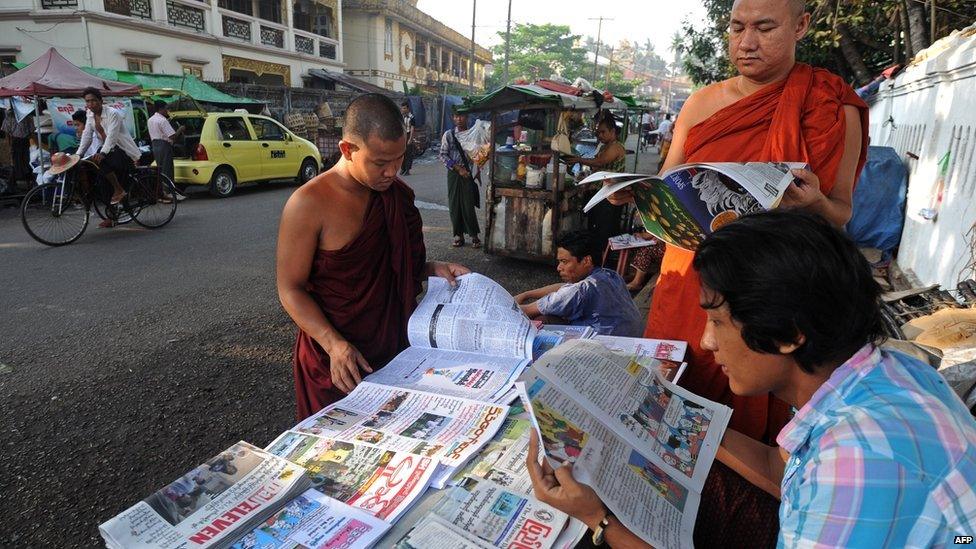
The 2021 coup "shattered the media landscape" and the junta - which "tolerates no alternative to its narrative" - quickly banned outspoken outlets, says Reporters Without Borders (RSF).
By the end of 2022, Myanmar had the third-highest number of imprisoned journalists in the world, after Iran and China, says the Committee to Protect Journalists.
The state media "are just propaganda outlets that receive scant attention from the population", says RSF.
TIMELINE
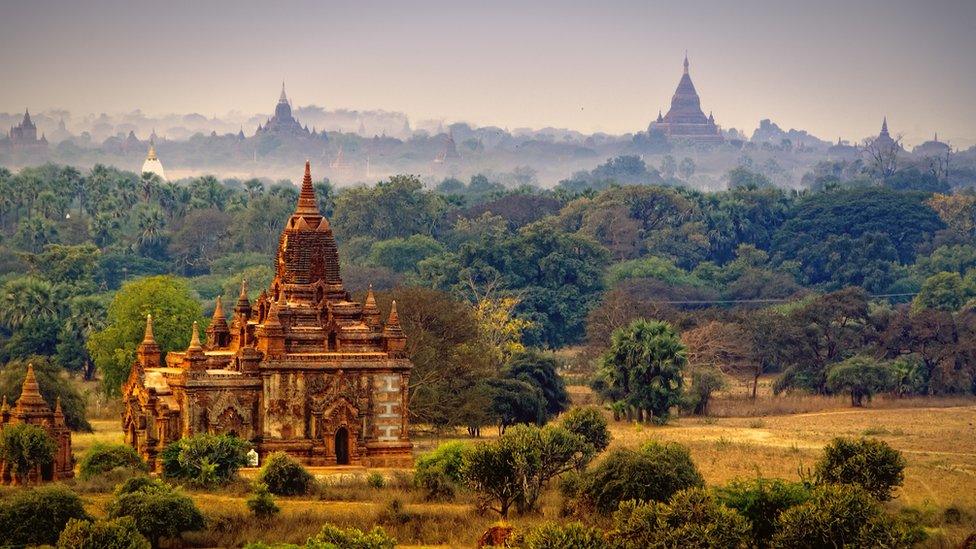
Bagan, formerly Pagan, was the capital of the medieval Bagan Kingdom, the first state to unify the regions that would later constitute Myanmar
Some key dates in Myanmar's history:
2nd Century AD - First-known city-states emerge in central Myanmar founded by Tibeto-Burman-speaking migrants from from present-day Yunnan.
1057 - King Anawrahta founds the first unified Myanmar state at Bagan and adopts Theravada Buddhism.
1287 - Bagan kingdom collapses following repeated Mongol invasions,which leads to 250 years of political fragmentation.
1510-1752 - Toungoo dynasty reunites country as Burma.
1752-1885 - Konbaung dynasty continues the administrative reforms begun by the Toungoo dynasty, laying the foundations of the modern state of Burma. These, however, prove insufficient to stave off the British.
1826 - First Anglo-Burmese War: Burma loses Arakan, Manipur, Assam and Tenasserim to the British.
1852-53 - Second Anglo-Burmese War: Much of central Burma occupied by British.
1885 - Third Anglo-Burmese War: UK annexes the rest of Burma, due to concerns over rival power France's takeover of Indochina.
1937 - Burma becomes a separately administered colony. Ba Maw, the first prime minister advocates for self-rule and opposes UK participation in World War Two.
1940 - Nationalist leader Aung San forms the Burma Independence Army in Japan.
1942-45 - Japan invades Burma, Allied forces launch major offensives to recapture Burma in late 1944, which is finally cleared of Japanese troops in July 1945.
The Burma National Army and the Arakan National Army fight with the Japanese from 1942 to 1944 but switch to the Allied side in 1945.
1947 - Aung San and British prime minster Clement Attlee agree on Burmese independence for the following year. Aung San's party wins power in a general elections to form a transitional government but he and most of his cabinet are assassinated by political rivals.
1948 - Burma becomes independent.
1962 - Military led by General Ne Win seizes power in a coup. In subsequent decades, they will ruthlessly supress all forms of dissent. Burma becomes one of the region's most impoverished countries.
1990 - Opposition National League for Democracy wins landslide victory in first multiparty elections in almost 30 years but the military ignores the result.
2006 - The military junta, which had moved the national capital from Yangon to a site in central Burma in November 2005, names it Nay Pyi Daw.
2015 - Aung San Suu Kyi's National League for Democracy wins enough seats in parliament to form a government.
2018 - UN accuses Myanmar of genocide against Rohingya Muslims.
2021 - Government overthrown in military coup.
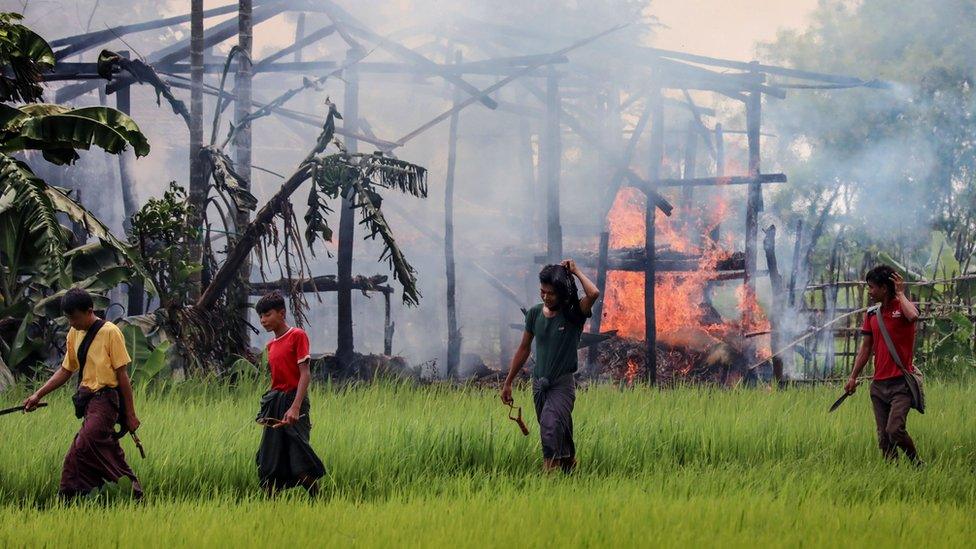
A million Muslim Rohingya reportedly fled persecution at the hands of the military and locals who burned villages to the ground in 2017
Related topics
- Published10 March
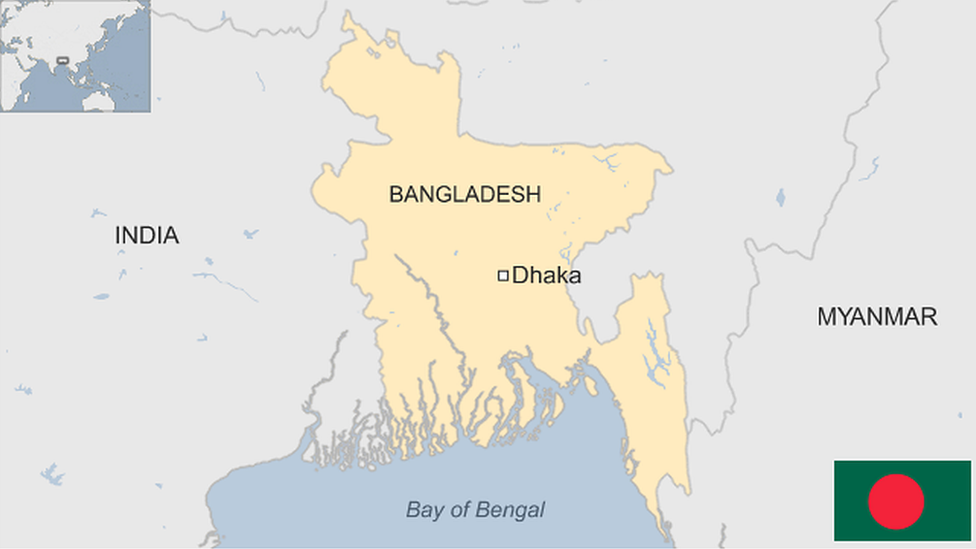
- Published10 March
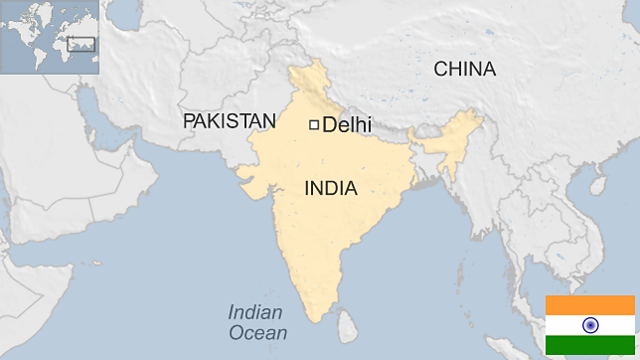
- Published25 August 2023
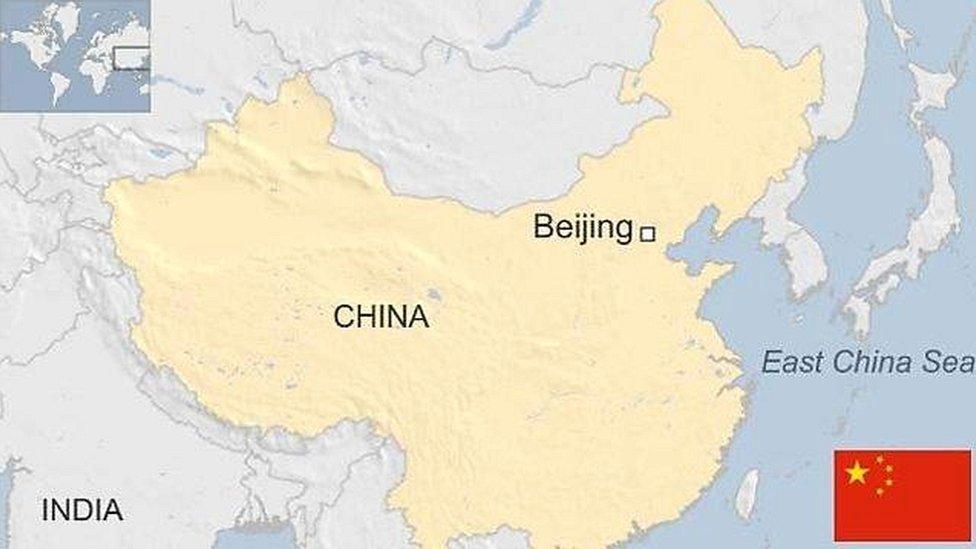
- Published18 April 2023
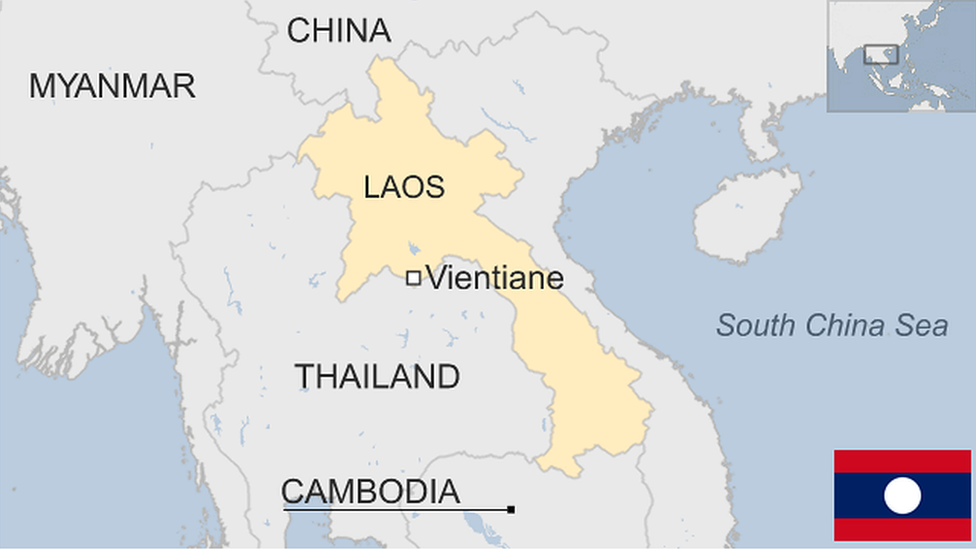
- Published16 August 2024
